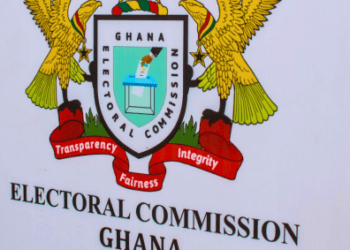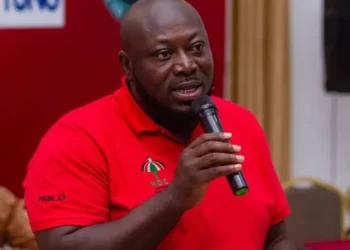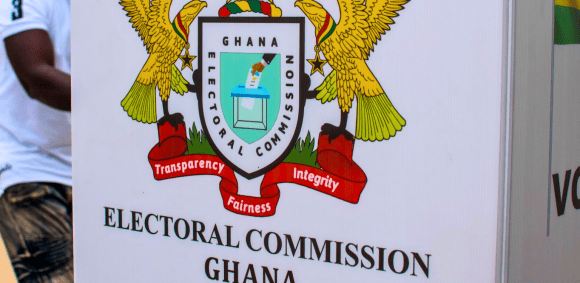The Emergency Support to Rural Livelihoods & Food Systems (ESRF) project, a vital initiative aimed at mitigating the devastating effects of COVID-19 on rural livelihoods and food systems, has officially concluded.
The culmination of this project was marked by a validation workshop held at the Hill Palace in Aburi, where stakeholders from various organizations gathered to celebrate its achievements and discuss the importance of sustained support for the thousands of smallholder farmers who benefited from the program.
The project’s National Coordinator, Dr. Hayford Baaah-Adade, presented a comprehensive report during t workshop, detailing both the successes and challenges encountered during the implementation phase.
“The ESRF project has been a beacon of hope for many rural farmers who were severely affected by the pandemic. Through our collaborative efforts, we have not only provided immediate relief but also laid the foundation for long-term resilience in these communities.”
Dr. Hayford Baaah-Adade, National Coordinator for ESRF Project
The ESRF project, implemented in 96 districts across Ghana, was designed to address the urgent needs of rural communities during the height of the COVID-19 pandemic.
One of the most significant achievements of the ESRF project was its ability to reach a wide swath of rural farmers with critical resources. According to Dr. Baaah-Adade, a total of 26,700 farmers received Personal Protective Equipment (PPEs) and were sensitized on the impacts of COVID-19, which was essential in preventing the spread of the virus in rural areas.
Furthermore, Dr. Baaah-Adade indicated that 24,782 farmers received improved seeds and fertilizers, enhancing their productivity during a period when food security was at risk.
In addition to these direct supports, the ESRF project provided financial aid to vulnerable farmers. A total of 4,790 smallholder farmers (SHFs) received cash grants of GHC 2,100 each, which helped them to sustain their livelihoods during the economic downturn caused by the pandemic.
This financial assistance was particularly crucial for those farmers who were most at risk of falling into poverty due to the disruption in agricultural activities.
The project also made significant strides in improving agricultural infrastructure, which will have long-lasting benefits for rural communities.
The construction of 51 boreholes, 200 hectares of water harvesting schemes, and 47 produce drying platforms were among the infrastructure investments made under the ESRF project. These developments are expected to improve water accessibility and post-harvest management, both critical components for sustaining agricultural productivity.
“In terms of transportation, the project constructed 45 kilometers of farm tracks and access roads, which will facilitate easier movement of goods and services in rural areas.
“Additionally, 229 beneficiary groups were provided with agro-processing equipment, which will help to add value to their agricultural produce and increase their incomes.”
Dr. Hayford Baaah-Adade, National Coordinator for ESRF Project
Sustaining the Gains Post-Project
While the ESRF project has officially come to an end, Dr. Baaah-Adade emphasized the importance of sustaining the achievements made during its implementation.
Dr. Baaah-Adade highlighted the establishment of water user groups to manage the boreholes and water harvesting schemes as a crucial step toward ensuring the longevity of these investments. These groups will be responsible for overseeing the maintenance and repairs of the infrastructure, ensuring that it continues to serve the communities for years to come.
The interventions have been formally handed over to their beneficiaries at both local and national levels.
Key stakeholders such as the Ghana Irrigation Development Authority (GIDA), Community Water and Sanitation Agency (CWSA), Department of Feeder Roads (DFR), World Food Programme (WFP), Food and Agriculture Organization (FAO), and Chief Executives of all beneficiary districts, along with traditional leaders, played a vital role in the handover process.
Their involvement underscores the collaborative nature of the project and the shared responsibility for its continued success.
Dr. Baaah-Adade made a heartfelt appeal to all partners involved in the ESRF project to continue supporting the smallholder farmers who have benefited from its interventions.
“We are grateful for the support we received during the implementation of the project. We cannot achieve this level of success without the continued collaboration and commitment of all our partners.”
Dr. Hayford Baaah-Adade, National Coordinator for ESRF Project
The ESRF project stands as a testament to the power of international cooperation in addressing global challenges like COVID-19. Supported by organizations such as the Ministry of Food and Agriculture, International Fund for Agricultural Development (IFAD), and the Food and Agriculture Organization (FAO), the project not only provided immediate relief but also laid the groundwork for sustainable development in Ghana’s rural communities.
READ ALSO: Omah Lay Accuses Colleague of Stealing His Album Concept





















